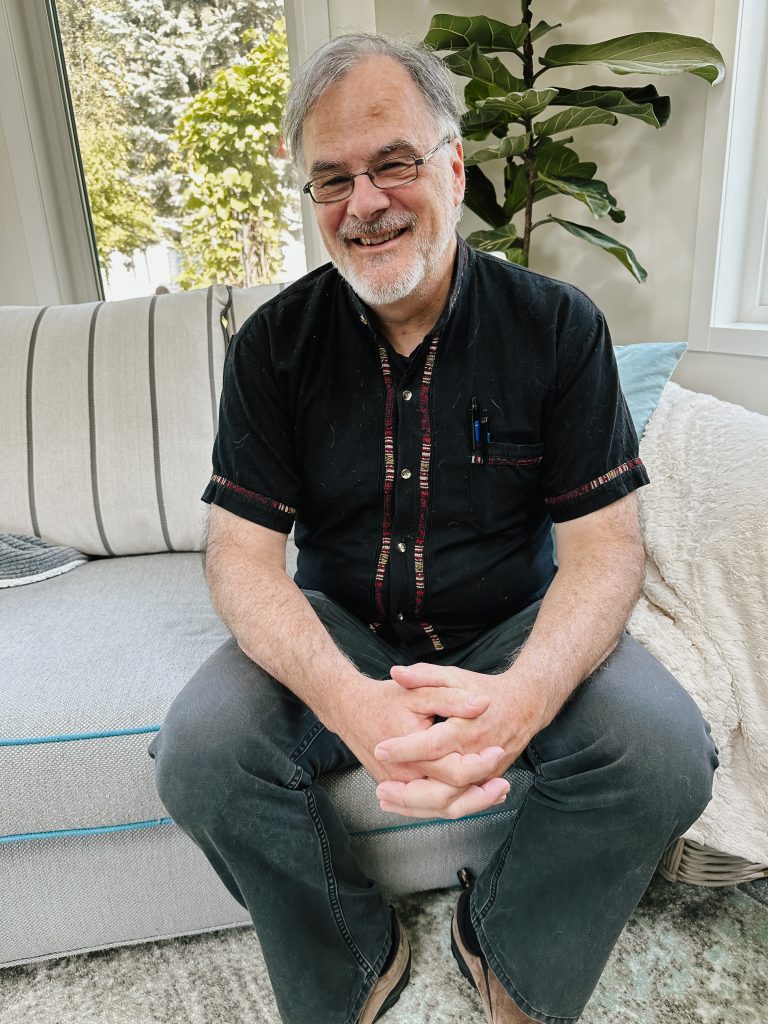Kevin MacDonald, MA
SENIOR ASSOCIATE COUNSELLOR/PSYCHOTHERAPIST
As a Marriage and Family Therapist, I work with individuals, couples and families to find solutions to the many pressing personal challenges that arise in our lives at any stage of development, from childhood to advanced age.
I have broad experience with presenting issues of depression and anxiety in many forms. As a couple therapist I received Level 1 & 2 training in the Gottman Method. I am also a Prepare/Enrich premarital and couple enrichment facilitator. As a family therapist I have the qualifications and experience to work with the whole range of issues that present in the family context with children and adults.
Finally, I should say a word about my religious background. Although I am ordained as a minister in a traditional Protestant denomination, i.e., the Presbyterian Church in Canada, I received my psychotherapy training in a secular context and it is entirely secular in nature, drawing on human psychology rather than on theology for its insights. Within this secular context, however, religious convictions are viewed as a strong resource, and I am certainly open to and interested in a client’s religious sensibility, whatever its nature. My point is that I welcome such discussions if this is the client’s interest, but will never seek to impose them on you or proselytise you in any manner. For clients who are interested in a faith-based approach to counselling, I am happy to provide this in a way that is formed by my theological and pastoral training.
Please allow me to highlight some characteristics of the Family Systems Approach:
It is SYSTEMIC, meaning that all participants in a relationship system can be influenced by factors impinging on that system at any point in the system. A relationship system can be likened to a kind of force field which holds all its parts in relationship. Just as with the parts of a mobile, when you set one part in motion all the others will be affected. This means that solutions may often come from unexpected quarters.
It is NON-BLAMING. While holding people accountable for unskilful behaviours, the Family Systems Approach prefers not to lodge blame in any one individual or in the system in general, viewing problems as the result of causes arising from a plurality of sources historical and present. Blaming tends to be counterproductive to healing as it creates strong defensive emotions in opposition. All symptoms are well-intentioned efforts on the part of the system to seek relief according to the best wisdom it can muster in the moment.
It is NON-PATHOLOGIZING, meaning the Family Systems Approach does not like to label participants in a system as “disease-carriers,” resisting the all-too-frequent urge to confine their identity to that of a disorder. Such labels tend to lodge problems within individuals and create immobility. By refraining from such labelling the Approach preserves the freedom of all the parts to pursue change.
It is CONTEXTUAL, meaning the Family Systems Approach views problems as situational, rather than granting them any permanently fixed presence in the system. It is possible to alleviate the problem by making adjustments to its context.
Finally, it is fiercely OPTIMISTIC. There is no limit to the power of relationship systems to grow and adapt to change. I never cease to be astounded by the ability of human beings to adapt to any challenging situation I have encountered with them. I have reason to be optimistic, and I would like communicate this optimism to you.
For more information on the MFT profession, please consult the following links:
Manitoba context:
http://www.mamft.ca/about-us/
Canadian context:
http://camft.ca/about-us/
American context:
http://www.aamft.org/iMIS15/AAMFT/Content/About_AAMFT/About_Marriage_and_Family_Therapists.aspx

